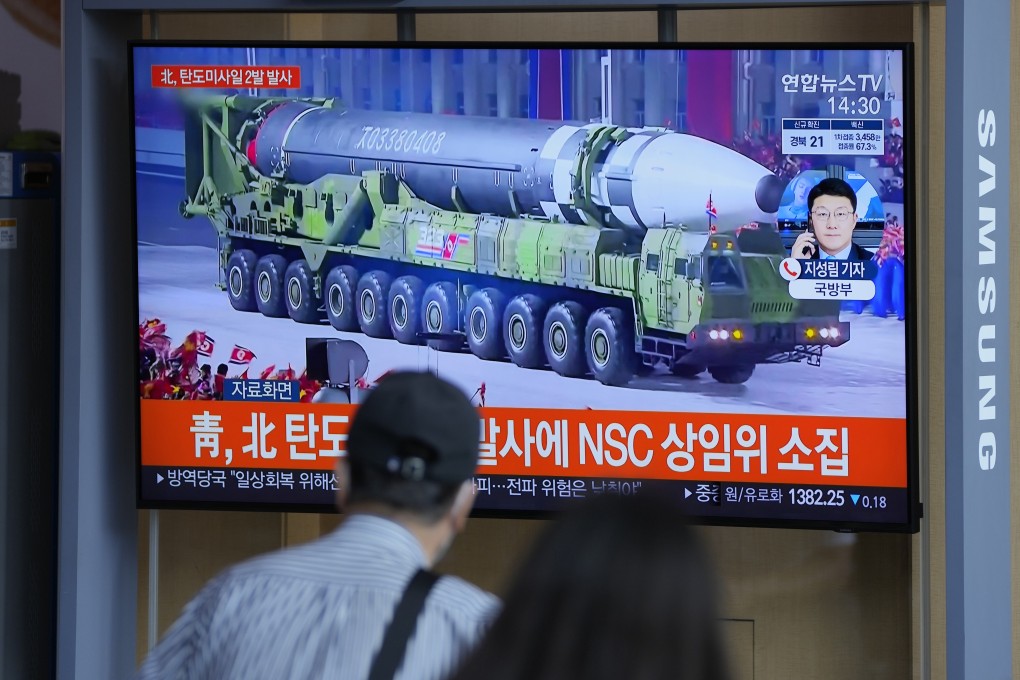With few options to rein in North Korea, missile launches won’t stop: analysts
- The missile launches this week highlight that beyond sanctions and censure, there are limited options to break up its nuclear arms programme
- With China and Russia on the UN Security Council unlikely to pass new punitive measures against North Korea, the US and its allies need a set of coordinated plans to deter the Kim regime, experts say

North Korea’s second round of missile launches in several days has brought into sharp relief the limited policy options for reining in weapons programmes that are considered among the region’s most pressing security concerns.
Pyongyang on Wednesday fired two short-range ballistic missiles into the Sea of Japan, or East Sea, in a potent reminder of the regime’s determination to advance its nuclear and missile capabilities amid stalled denuclearisation talks.
Kim Jong-ha, dean of the Graduate School of National Defence and Strategy at Hannam University in Daejeon, South Korea, said regional partners had few options available to respond to the North apart from sanctions and censure.
Pyongyang would be unlikely to change its stance without major pressure from Beijing, its main trading partner and ally, Kim added.

01:25
North and South Korea test fire ballistic missiles hours apart
Uk Yang, an adviser to South Korea’s Ministry of National Defence, said sanctions were the “only leverage” available to bring the North back to negotiations, but admitted Pyongyang had “no intention” of disarming.